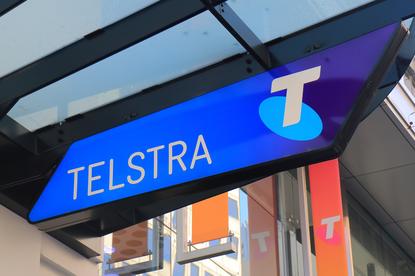Telstra ‘seeking to position’ itself for NBN purchase, unions claim
- 19 July, 2019 16:22

The unions at the centre of Telstra bargaining talks have fuelled speculation that the telco is priming itself to buy the National Broadband Network (NBN).
According to the unions’ Single Bargaining Unit (SBU), Telstra sought “to position itself in a way that would enable it to purchase” the NBN if the service was privatised by the Federal Government.
Although Telstra claimed to the SBU it did not have “concrete plans”, the unions expressed concern due to its potentially “unintended consequences” for workers laid off by the telco.
These relate to Telstra’s proposed revival of its “contentious” 'Transfer of Business' scheme, known as ‘Clause 45’, which gives axed Telstra workers employment with one of its subsidiaries without receiving redundancy benefits.
The SBU argued that if subsidiaries were created to purchase and operate the NBN, it could see employees shifted to those companies without triggering a redundancy situation.
“Whilst generally, the SBU would support any bid by Telstra to generate work and revenue that would allow our members employed in traditional areas of the business to retain their employment with the company, we recognise that members also need certainty around the preservation of their terms and conditions of employment during times of change,” the unions said.
The unions added they are seeking further legal advice to allow “Telstra to pursue their claimed motives” whilst satisfying their concerns over Clause 45.
The SBU, which comprises of the Communications Electrical and Plumbing Union (CEPU), the Community and Public Sector Union (CPSU) and Professionals Australia, is currently negotiating a new enterprise bargaining agreement (EBA) for Telstra workers following a raft of changes.
These follow on from Telstra’s decision to let go 9,500 staff by 2022, roughly 10 per cent of its workforce. The telco said it expected to cut up to 6,000 roles by the end of the 2019 financial year, putting it "on track" to reach the previously announced net cost out target of $2.5 billion.
During the latest talks, the parties came to an agreement over allowing employees to volunteer for redundancy at an earlier stage, therefore allowing more time for an impacted staff member to remain employed by Telstra.
They also reached agreed ground on allowing casual employees to request permanent employment following 12 months of regular casual employment, which can only be refused on reasonable grounds.
Arguments for a pay rise also met with progress as Telstra agreed to recognise any pay outcome achieved during the talks in a new EBA in addition to the 1.5 per cent already paid. This would be rather than the pay rates contained in the current, nominally expired agreement.
The unions are hoping to negotiate a 2.5 per cent pay rise in the EBA, which has so far been rejected by Telstra.
Telstra called the latest talks as “good progress”, touting the creation of 16 weeks of paid leave for new parents, in addition to the voluntary redundancy and casual worker arrangements.
On Clause 45, a Telstra spokesman added: “We think this makes sense in terms of keeping people in employment across the Telstra Group. However, the terms of this are still to be worked through with unions.”

